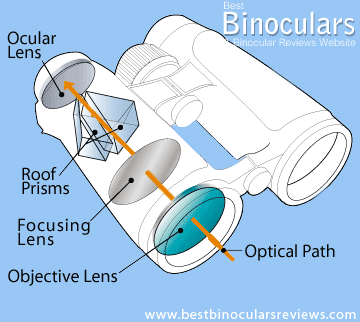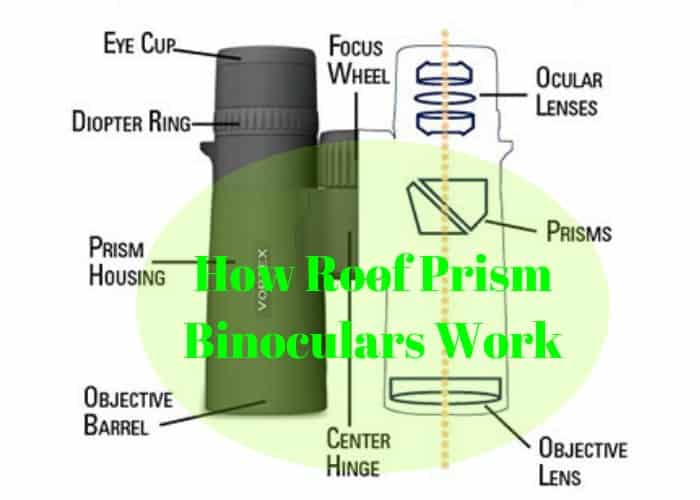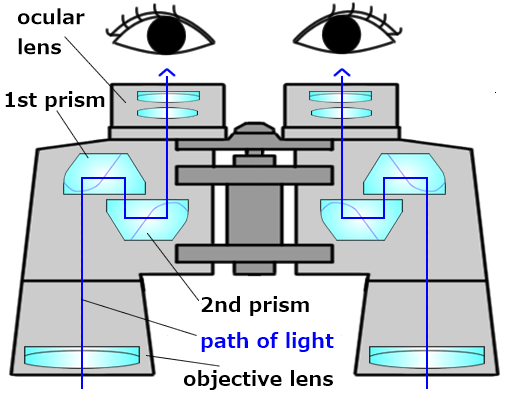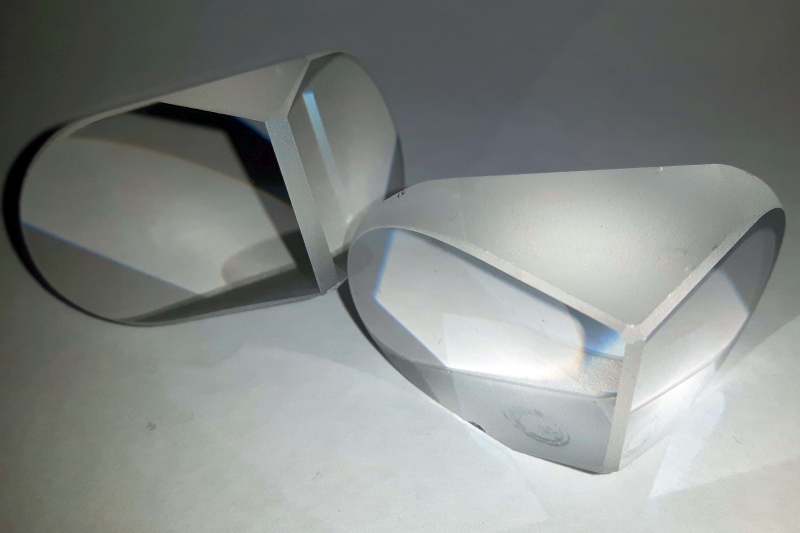Although roof prism was invented somewhere around the 19 th century they became common in the market by 1980s when different manufacturers started to use them in the binoculars.
Roof prism the reason for its invention is.
Lemiere invented the first binocular telescope in 1825.
There are two types of prism binoculars.
Porro prism binoculars have objective lens tubes that are offset from the eyepieces.
These two faces of this prism form a roof like structure that s why the name roof prism is given to this prism shape.
Binoculars using roof prisms may have appeared as early as the 1870s in a design by achille victor emile daubresse.
However the optical path is bent like the letter z.
That works two ways.
Most roof prism binoculars use either the abbe koenig prism named after ernst karl abbe and albert koenig and patented by carl zeiss in 1905 or the schmidt pechan prism invented in 1899 designs to erect the image.
All of its reflective surfaces are completely reflective so it loses no light and such binoculars are easy to produce.
These two 90 faces resemble the roof of a building giving this prism type its name.
As shown in fig.
Roof edge is a reflective optical prism containing a section where two faces meet at a 90 angle.
Roof dach prism type and porro prism type.
If you re still not sure if you should buy your team porro or team roof t shirt there are a few advantages and disadvantages to them.
When a light beam enters a schmid pechan s prism it enters the first prism vertically and is reflected at the inner face near the air gap and reflected again on the underside of the prism after which it exits the prism via the air gap and vertically enters the second prism.
A roof prism also called a dach prism or dachkanten prism from the german.
10 and 11 consists of a typical schmidt prism 45 apex angle 51 and an amici type prism or amici roof prism 52.
This prism is not a dispersive prism.
10a the entry prism is the amici type prism 52 with a roof 53.
In this figure the schmidt prism 51 also has a roof 54.
There are two major types of binoculars designed from these prism systems.
The porro prism model and roof prism model.
Reflection from the two 90 faces returns an image that is flipped laterally across the axis where the faces meet.
The sa combination prism 50 figs.
The first type has been used for more than a century while its counterpart has been the product of a more recent technological innovation in the field of.
The prisms angle from the eyepieces to the objective lenses roof prism binoculars have two straight tubes making them smaller and more compact.
The porro prism was invented by ignazio porro in mid 19th century italy.









